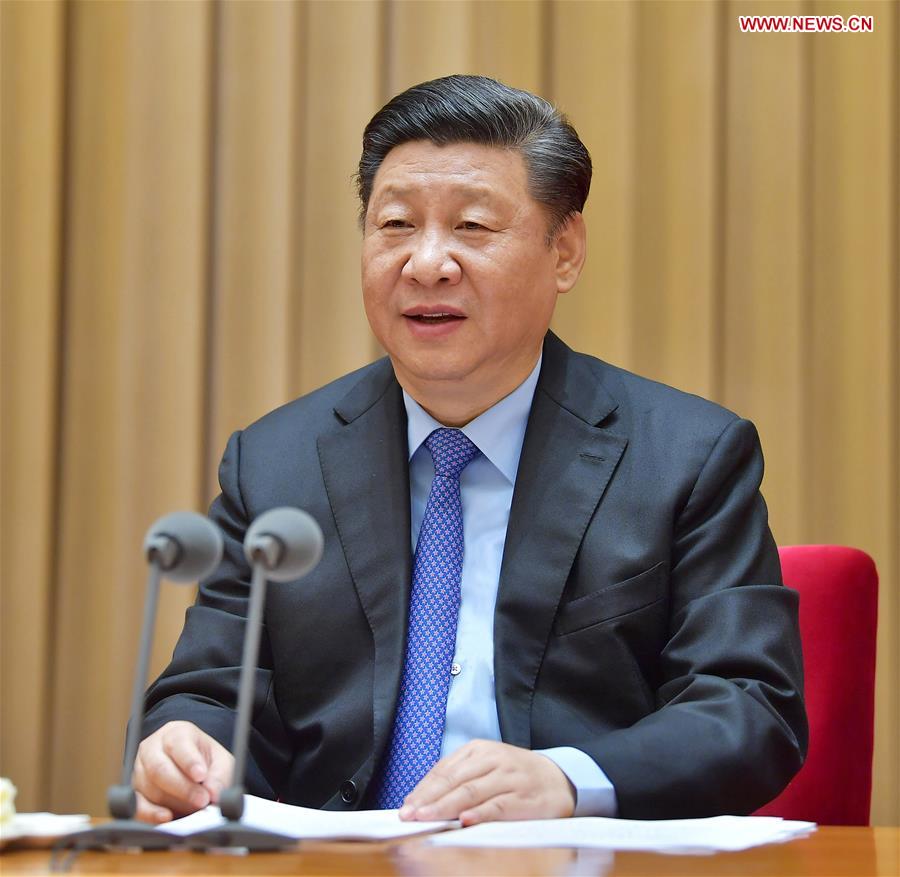Xi's blueprint for China's rise as a cyberspace leader
- By Harvey Dzodin
 0 Comment(s)
0 Comment(s) Print
Print E-mail China.org.cn, April 24, 2018
E-mail China.org.cn, April 24, 2018
Last week's speech by President Xi Jinping, as head of the Central Cyberspace Affairs Commission, provides a clear blueprint to China's cyberspace leadership. At the same moment, U.S. President Donald Trump and his band of zero-sum brothers is inadvertently advancing China's position through their "America First" madness.

In his recent speech, Xi emphasized that China will strive for breakthroughs in core information technologies, and he said that to do so, more resources will go into relevant research, industrial development, and innovative policies supportive of these goals.
Xi also stated that the development of cybersecurity and informatization should be aimed at contributing to the continuing modernization of China's economy, stressing that efforts must be toward high-quality development including new models of industrialization, urbanization and agricultural modernization.
He underscored the importance as well of developing the digital economy, of promoting deep integration of the internet, big data and artificial intelligence with the real economy, and of upgrading the manufacturing, agriculture, and service sectors to be smarter, more digitalized and internet-powered.
In essence, President Xi's recent remarks built upon a very similar speech of almost exactly two years previous. As a former speech writer for the Carter White House, I can attest that this was one of the best, clearest and most inspiring speeches I have ever encountered.
In his 2016 speech, Xi gave a cogent socio-economic history of the world and China's place within it. Starting with the agricultural revolution, moving through the industrial revolution and into our modern-day information revolution, he traced how China, once a global economic power, "lost a historical opportunity to progress together with the world." He tied China's current drive for cyberspace leadership to nothing less than the rejuvenation of the Chinese nation.
Realizing the Chinese Dream, he also said, means making technological breakthroughs in a trio of core technologies: basic technology, asymmetric or "trump card" technology and advanced, or disruptive, technology.
These were not mere pie-in-the-sky wishes, but are being aggressively implemented. Under Xi's leadership, China has now been the world leader in applications for invention patents for seven consecutive years. To cite a few examples, China is leading the world in high-speed rail, e-commerce, mobile payments, and the sharing economy. In manned spaceflight, deep-water exploration, quantum communications, large aircraft development, and more, the country has had further major successes. All of these depend on the mastery of cyberspace at increasing levels of sophistication.
Some major initiatives will further support the mission. Made in China 2025, for example, is a national project to make the country self-sufficient in manufacturing with homegrown solutions by 2025; meanwhile, AI 2030 has the goal of making China the leader in artificial intelligence by 2030.
Moreover, since these initiatives will take all the brain power China can muster, the country has recently implemented a new long-stay fast-track visa for foreign "high-end talent" and their families. The policy is designed to supplement the scientific and entrepreneurial talent of Chinese students, especially those who study in foreign universities and return to China equipped with critical thinking skills and practical experience in their chosen fields.
Together, these add up to the plans for global leadership that Xi outlined in his two speeches. Ironically, Trump is aiding them as he busily cuts domestic funding for similar research in order to further enrich America's most wealthy. He and his advisers are unaware that those who master industrialization and AI will have won. It will be "Game over."
Trump's strategy is to try to cut China off from American technology. But why? Because he is all about "win-lose" where Xi is all about "win-win." Last week's decision to cut off Chinese telecom manufacturer ZTE from U.S. mobile chipsets for seven years, is a perfect example. While there is no denying that ZTE did not have clean hands in this matter, there were other punishments available. But this shortsighted move will backfire as China is forced to develop and control its own technology.
As if predicting Trump's anti-globalization movement two years ago, Xi said then that "internet core technology is the greatest ‘vital gate,' and the fact that core technology is controlled by others is our greatest hidden danger." As a result of the ZTE decision, urgent deliberations are ongoing in China; Reuters reports that senior Chinese officials have been meeting to speed up production of domestically designed and manufactured chipsets as China is fast-tracked to begin to introduce 5G technology in the near future.
The author is a research fellow for the think tank Center for China and Globalization, senior adviser to Tsinghua University and former director and vice president of ABC Television in New York.
Opinion articles reflect the views of their authors, not necessarily those of China.org.cn.






Go to Forum >>0 Comment(s)